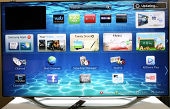Visitors to the web site of the Veterans of Foreign Wars (VFW) are being targeted in an attack that exploits a previously unknown hole in Microsoft’s Internet Explorer 10 web browser, according to warnings Thursday by security firms. Some visitors to the web site of the Veterans of Foreign Wars (VFW), vfw[dot]org, were the victim of a ‘watering hole’ attack that takes advantage of a previously unknown ‘use-after-free’ vulnerability in Microsoft’s Internet Explorer 10 web browser. The VFW site was hacked and then altered to redirect users, silently, to a malicious website programmed to exploit vulnerable versions of IE 10 on systems running 32 bit versions of the Windows operating system. The VFW did not immediately respond to e-mail and phone requests for comment. According to a write-up by the security firm FireEye, the vulnerability allows the attacker to “modify one byte of memory at an arbitrary address” stored […]
Web browsers
New Mobile Malware Taps Ad Networks To Spread
It was only a couple weeks back that we wrote about new research from the folks at WhiteHat Security that posited a way for mobile ad networks to be gamed and used to distribute malicious code. Now it looks as if the bad guys were one step ahead, as researchers at Palo Alto Networks reveal new type of malicious Android malware that uses mobile ad networks to infect vulnerable devices. Palo Alto described the new, malicious mobile software, dubbed “Dplug,” in a blog post on Monday. The company said the malware authors appear to be leveraging second tier mobile ad networks, mostly in Russia and the former Soviet Republics), to distribute their wares. The Dplug malware takes advantage of the deep integration between mobile applications and mobile advertising networks to gain a foothold on infected devices, then send out messages to premium SMS services to generate money for the fraudsters, according […]
Samsung Smart TV: Like A Web App Riddled With Vulnerabilities
Smart television sets aren’t short on cool features. Users can connect to Facebook and Twitter from the same screen that they’re using to watch Real Housewives of New Jersey, or log into Skype and use a built in- or external webcam to have a video chat. Unfortunately, the more TVs start to look like computers, the more they are becoming subject to the same underlying code vulnerabilities that have caused headaches and heartache in the PC space. That was the message of two researchers at the Black Hat Briefings security conference Thursday, who warned that one such product, Samsung’s SmartTV, was rife with vulnerabilities that could leave the devices vulnerable to remote attacks. Vulnerabilities in the underlying operating system and applications on Samsung SmartTVs could be used to steal sensitive information on the device owner, or even spy on the television’s surroundings using an integrated webcam, said Aaron Grattafiori and Josh […]
Microsoft Set To Pay First Bug Bounty For IE Hole
Weeks after launching its first, formal bug bounty program, Microsoft is set to issue its first monetary reward, according to a blog post by Katie Moussouris, the Senior Security Strategist at Microsoft’s Security Response Center (MSRC). Writing on Wednesday, Moussouris said that the company has received “over a dozen” submissions since it launched the paid bounty program on June 26, and that “I personally notified the very first bounty recipient via email today that his submission for the Internet Explorer 11 Preview Bug Bounty is confirmed and validated. (Translation: He’s getting paid.)” Last month, Microsoft announced its new policy to pay for information about serious vulnerabilities in its products. The company had long maintained that it provided other kinds of rewards for information on software holes – mostly recognition and jobs – and didn’t need to offer bounties, as firms like Google, The Mozilla Foundation and Facebook do. In launching the new […]
Missing in Action At BlackHat: The PC
Once the target of choice for hackers of all stripes, personal computers (PC) will be -at most- a side attraction at this year’s annual Black Hat Briefings show in Las Vegas, where presentations on ways to attack mobile devices and other networked “stuff” will take center stage. Just over ten percent of the scheduled talks and turbo talks at The Black Hat Briefings in early August (5 of 47) will be devoted to attacks against what might be considered “traditional” endpoints, like end user systems and servers running Microsoft’s Windows, Apple’s Mac OSX and Linux. By contrast, more than 30% will discuss security flaws and attacks against mobile phones or other “smart” devices including wireless surveillance cameras, home automation systems and smart meters. The dearth of PC-focused talks isn’t a new trend in and of itself. As far back as 2006, talks that explicitly discussed security issues with components of Microsoft’s […]




